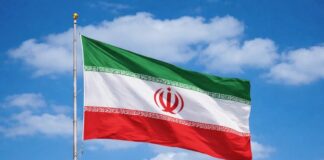The Federal Government is considering an ‘Operation Feed Yourself’ initiative to encourage the establishment of urban farms and small home gardens across the country.
Vice President Yemi Osinbajo explained that the initiative, to be undertaken in collaboration with states under the auspices of the National Economic Council and the National Council on Nutrition, was part of efforts to address malnutrition and related challenges.
The plan for this initiative is one of three major plans arising from the UN-backed Food Systems Dialogues, to advance the fight against malnutrition, the Vice President stated at a high-level meeting on nutrition on Monday.
Other plans, he added, were providing support to farmers across the country, especially by providing useful weather and soil pattern information that would improve farming yields, as well as encouraging state governments to ensure prompt release of budget for nutrition and related activities.
“There are practical steps that can be taken by the states and Federal Government in the next 12 months,” Professor Osinbajo told the meeting. “I think that some of the suggestions are important, especially those that have come from the UN Food System Dialogue.”
Boost Food Security
He listed the different stages as the establishment of agribusiness investment hubs or farm settlements, the establishment of urban farms and homestead gardens by individuals and schools, the adoption of weather information to support farming, leveraging the support of the UN agencies and other partners for nutrition activities, and the call on MDAs and states to release funding for nutrition activities.
“States and the FGN will promote what the convener has described as ‘Operation Feed Yourself. This is more of the establishment of urban farms and homestead gardens,” the Vice President stated. “This is simply something that we think should be a mass appeal to citizens in the states, and the encouragement we can give them so that individuals and schools develop their own farms or homestead gardens.
“This obviously not only helps individuals and families but the excess can be sold to others and generally improve food security. The establishment of agribusiness investment hubs or farm settlements or farm estates or any variety of those kinds of integrated farming arrangements will improve food and nutrition security.
“What we are recommending is the sort of model that Oyo State has or any of the variety that states have. That sort is obviously recommended because of the way that it is structured and the obviously good result that they have been getting.”
Nutrition Budget
Speaking specifically about the funding of nutrition and related activities by MDAs and states, Professor Osinbajo said a point of importance had been made, even at the National Economic Council meetings.
“It is one of the action points as defined in the food transformation pathways which we already have issued and we are hoping that these budget releases will be specifically directed at the action points defined in the transformation pathways because these are ways by which we have identified that we can gain maximum traction in food security,” he explained.
“We urge the states to budget adequately for nutrition. Each MDA and state should adopt the national priority list, make budgetary provisions for those who haven’t concluded their 2022 annual budgets. I think there is still time to make adequate budgetary provision for nutrition in the 2022 budgets.”
Professor Osinbajo urged the state governments to adopt partnerships that can be effective in scaling up nutrition and related activities.
He said “it is also clear that we can leverage on the support of the UN agencies and other partners like the Foreign, Commonwealth & Development Office (FCDO), United States Agency for International Development (USAID), and the World Bank, as well as our development partners, the Bill and Melinda Gates Foundation and Aliko Dangote Foundation.
“The Aliko Dangote Foundation was able to show what they have been doing, especially with de-risking facilities that could be used by farmers in the various localities all over the country.”
The meeting was attended by the United Nations Deputy Secretary-General, Mrs Amina Mohammed, state governors, and representatives of development partners, among others.
Mrs Mohammed, who acknowledged the leadership of Nigeria to the UN agenda 2030 and the Africa Union agenda 2063, believes the solution to many of the challenges associated with malnutrition lies in Nigeria’s recent commitment through the Food Systems Summit process.
“I will like to pay tribute to the leadership of the Vice President, Professor Osinbajo, and to the efforts of the Mrs Olusola Idowu, as the national convener of the virtual engagement by His Excellency at the pre-summit and clear, focused, ambitious national pathways that were published ahead of the Food Systems Summit in September,” she said.
“At the summit itself, His Excellency, the President made decisive and inspiring commitments, and all these efforts of the emerging pathways, Nigeria has demonstrated a holistic approach to the food systems transformation which really underpins that transformation that it is about climate, it is about nutrition and about an inclusive economy.”
On his part, the Chairman of the Nigerian Governors Forum, Dr Kayode Fayemi, said despite dwindling financial resources, the states would continue to push on the frontier of improvement in nutritional issues.





